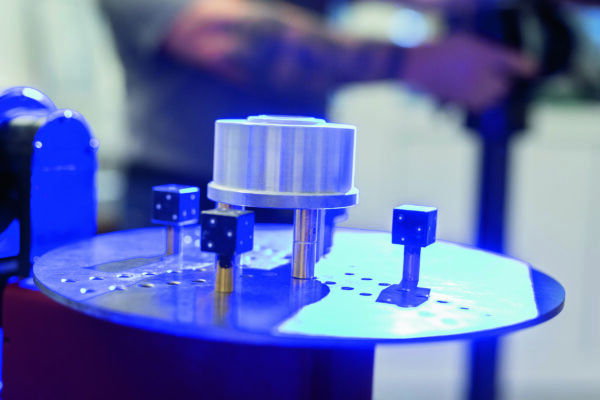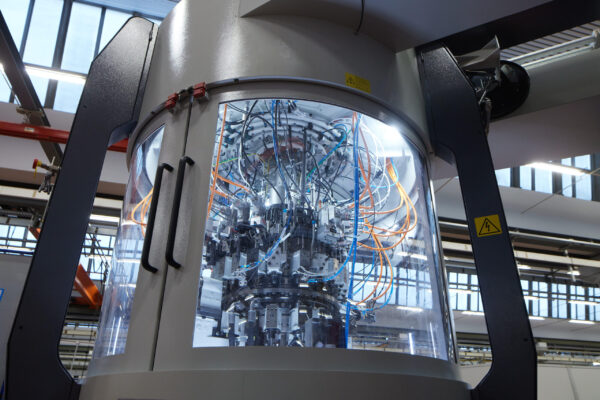IBU-tec’s revenues were lower during FY20 because of a fire at BNT and reduced demand because of the coronavirus pandemic, but insurance payouts helped keep EBITDA stable. Management expects a return to growth in FY21, driven by the launch of its own battery materials for electric vehicles (EVs) in H221. It has outlined its strategy to deliver revenues of €80–100m or more by 2025, based on demand for battery materials, coatings which extend the number of times glass bottles can be reused and recycling of rare earths and battery materials.
FY20 revenues affected by fire as well as pandemic
Group sales fell by €15.5m year-on-year during FY20 to €33.0m. This was the combined effect of a fire at the BNT subsidiary in December 2019, which reduced production capacity throughout the period, and the coronavirus pandemic, which resulted, for example, in customers taking production back in house. EBITDA, which included insurance payments, declined very slightly, by €0.1m to €7.0m.
Battery materials driving growth
Noting the anticipated impact of the coronavirus pandemic on demand, management expects sales to increase to €37–39m during FY21 with an EBITDA margin of 17–19%. The key growth driver is the battery materials segment, where management expects sales to increase by over 50% as the group starts to sell its battery product for use in lithium iron phosphate (LFP) battery cells for EVs and stationary applications during the autumn. Management has set itself a target of growing turnover to between €80m and €100m or more by 2025, representing average growth of 20–25% each year, with an EBITDA margin of more than 20%. It expects demand for battery materials and to a lesser extent for glass coatings and recycling services to be the main drivers of this growth. In February 2021, IBU-tec raised €25.5m (gross) through a placing at €34/share to finance further growth, particularly in the area of proprietary battery materials.
Valuation: Growth from battery materials priced in
IBU-tec’s share price has risen by more than 50% since the start of 2021. We believe this is attributable to investor appetite for shares linked to the EV sector. At the current level, IBU-tec’s shares are trading on prospective EV/EBITDA multiples that are above the peer group average (year 1: 28.9x vs 10.6x), suggesting that the higher revenue growth management expects through engagement in the battery materials market may already be priced in.
Year
end |
Revenue
(€m) |
PBT
(€m) |
PAT
(€m) |
DPS
(€) |
P/E
(x) |
Yield
(%) |
12/19 |
48.5 |
1.5 |
0.9 |
0.19 |
N/A |
0.4 |
12/20 |
33.0 |
1.6 |
1.0 |
0.00 |
N/A |
N/A |
12/21e |
39.3 |
1.7 |
1.2 |
0.17 |
N/A |
0.4 |
12/22e |
58.2 |
5.4 |
3.6 |
0.20 |
N/A |
0.4 |
Source: Company accounts, Refinitiv
|
Revenues affected by fire as well as coronavirus pandemic
Group sales fell by €15.5m year-on-year during FY20 to €33.0m, in line with management guidance. At the start of 2020, management had expected there to be some reduction in revenues following a fire at the BNT site in December 2019. Although the fire was confined to one production area dedicated to the manufacture of chemical catalysts used for dip painting in the automotive industry, the fire damage was more extensive than originally thought, with parts of the plant used in the production of glass coating and pharmaceutical products being indirectly affected by the fire. More significantly, travel restrictions imposed during the coronavirus outbreak delayed reconstruction work, so production is not likely to resume until later in 2021. BNT partly compensated for this unexpected reduction in chemical catalysts output by sourcing them from third parties, carrying out some value-add steps and selling the product to existing customers. This initiative has had the additional benefit of maintaining contact with customers while in-house production is suspended.
All three sites remained operational during the coronavirus pandemic. The adverse effect of the pandemic did not begin to be felt until April and predominantly affected the original IBU-tec site in Weimar because of its service-based business model. Faced with lower demand, customers used their in-house production facilities before outsourcing production to IBU-tec. There was a clear recovery and stabilisation in demand during Q420. Sales of catalytic powders for the automotive industry for FY20 as a whole were at the level expected prior to the pandemic. Demand for battery materials for the automotive industry and chemical catalysts was significantly below the previous year's level.
EBITDA supported by insurance payout
EBITDA declined very slightly, by €0.1m to €7.0m. This included insurance reimbursements for business interruption and fire-related property damage totalling €8.1m. Profit before tax increased by €0.1m to €1.6m, with the decrease at EBITDA level offset by slightly lower levels of depreciation and operating expenses. Reported PAT increased by €0.1m to €1.0m.
Fund-raising to finance growth in battery materials
Net debt reduced from €14.6m at end December 2019 to €11.3m at end December 2020. Cash generated from operations during FY20 was €4.5m, flattered by a €0.4m reduction in working capital. €3.9m was invested in equipment at the new IBU-tec location in Bitterfeld and some replacement equipment following the fire at BNT.
In February 2021 IBU-tec raised €25.5m (gross) through a placing of 750,000 new shares at €34/share. At the same time, the CEO sold 250,000 shares, also at €34/share, to satisfy institutional demand. The funds will be used to finance further growth, particularly in the area of proprietary battery materials.
Prospects – into a new dimension
Management guiding for growth in FY21
Management expects sales to increase to €37–39m during FY21 with an EBITDA margin of 17–19%. This forecast fully takes into account the anticipated impact of the coronavirus pandemic on current year performance. One of the key drivers of this growth is the battery materials segment, where management expects sales to increase by more than 50% as the group starts to sell its battery product for use in LFP battery cells during the autumn.
Developing new markets in greentech
High levels of customer concentration caused problems in H217, when revenues were badly affected by a sudden drop in demand for diesel vehicles following the ‘Dieselgate’ scandal. Management has consequently worked hard to reduce the group’s dependence on individual customers and market segments, expanding its presence in markets with long-term growth potential such as e-mobility, air pollution control and resource conservation. It has also started to complement the toll processing business model deployed at its Weimar site with its own products. This initiative is being led by the chief sales officer Dr Arndt Schlosser, who joined IBU-Tec in May 2020, bringing more than 20 years of experience in a management at German multinational chemical company Wacker Chemie.
Management has set itself a target of growing turnover to between €80m and €100 million by 2025, representing average growth of 20–25% each year, with an EBITDA margin of more than 20%. It expects demand for battery materials and, to a lesser extent, glass coatings and recycling services to be the main drivers of this growth.
Battery materials – launching own product in H221
IBU-tec’s thermal treatment processes, which use either rotary kilns or its proprietary pulsation reactors, provide higher-quality, more homogenous materials than most Asian suppliers. Higher performance materials equates to longer electric vehicle (EV) range. As noted in our report on the lithium-ion battery market, removing consumer concerns about EV range is central to wider EV deployment. During FY19, IBU-tec started supplying materials directly to a major EV battery manufacturer in the Far East. In addition to significant volumes for stationary energy storage applications, IBU-tec has worked with several major battery manufacturers on the development of materials for use in EV battery cathodes and anodes. Until now, IBU-tec has acted only as a service provider and contract manufacturer in this area. However, the patent protection of LFP battery material that IBU-tec previously produced under licence for a third party expired at the end of 2020, leaving the company free to launch its own LFP product in H221. IBU-tec has already won German battery company Varta as a customer for its new product and is experiencing high levels of interest from international companies. Management is targeting a more than tenfold increase in sales of battery materials to c €21m by 2025.
LFP is currently the dominant battery technology in e-buses, e-bikes, fleet vehicles and entry-level mass-market EVs because its energy density is less than that of lithium cobalt oxide (LCO), which was the original lithium-ion battery technology, it has a longer cycle life and good thermal stability. It is also relatively low cost because the cathode does not contain cobalt. In February this year, Elon Musk announced that Tesla was shifting standard range cars from a nickel cathode to an iron cathode, ie LFP battery technology, to reduce the risk of potential cobalt and nickel shortages. LFP is also becoming increasingly popular for stationary storage applications.
Management estimates that IBU-tec already has a 40% share of the European market for organotin compounds used in glass coatings. This share is likely to increase following the closure of Lanxess’s organotin specialities facility in 2020, which leaves IBU-tec as the sole European producer of glass coatings. Management is aiming to double the group’s sales in this segment to c €12m by 2025. Rather than simply replacing equipment at BNT on a like-for-like basis following the fire, management is adapting the production facilities to make the processes more efficient and environmentally friendly, and accommodate rising demand for its monobutyltin trichloride (MBTC) glass coating product. This will be covered by insurance.
MBTC is used as a coating for glass bottles to improve mechanical strength and seal micro cracks caused by roughness in the mould. As a result, glass bottles can be reused more times before needing to be replaced. Glass packaging is becoming more and more important in Europe as an environmentally friendly alternative to plastic. In addition, the growing middle class in the emerging countries of South America and Asia is driving demand for glass products in these regions. Mordor Intelligence estimates that the global glass packaging market totalled US$56.6bn in 2020 and predicts that it will reach US$73.3bn by 2026, a CAGR of 4.4%.
Service/recycling
The group’s service offer was significantly expanded following the acquisition of BNT in June 2018, which added complementary wet chemistry processes to the original thermal processing capabilities. Management is targeting a doubling in service revenues by 2025 to €23m. It expects to achieve some of this growth through cross-selling and providing a more complete package to new customers. In addition, the group is beginning to offer its services to potential customers interested in recycling high-value rare earths and battery materials. During FY20, it worked on two publicly funded projects (REALight and REMINTA) in the field of material recycling using rotary kilns. Management is targeting €20m revenues from recycling battery materials by 2025, in addition to the €23m service revenues, potentially making revenues from sales of battery materials and recycling them around one-third of the group total.
Valuation: Growth from battery materials priced in
Edison Investment Research provides qualitative research coverage on companies in the Deutsche Börse Scale segment in accordance with section 36 subsection 3 of the General Terms and Conditions of Deutsche Börse AG for the Regulated Unofficial Market (Freiverkehr) on Frankfurter Wertpapierbörse (as of 1 March 2017). Two to three research reports will be produced per year. Research reports do not contain Edison analyst financial forecasts.












